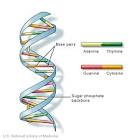In recent weeks, a panel of Illinois appeals court judges reversed Juan Rivera’s 1993 conviction for raping and murdering 11-year-old baby sitter Holly Staker in Waukegan the previous year.
The ruling (PDF) was a prominent pro bono victory for Jenner & Block, which came almost twenty years after Rivera was found guilty at the first of three trials. The law firm approximates that over 80 of its attorneys and staffers spent over 12,000 hours on Rivera’s latest trial and appeal.
Rivera’s original conviction was overturned based on questions about the evidence used against him. In 2006, a second guilty verdict was overturned after new DNA tests found he was not the source of semen found inside Staker’s body. The exculpatory DNA tests were obtained by lawyers from the Center on Wrongful Convictions at Northwestern University School of Law who continued their work on the case—joined by a Jenner team—for Rivera’s third trial, in 2009, and his latest appeal.
During Rivera’s 2009 trial, state prosecutors tried to explain the lack of DNA evidence against Rivera by suggesting Staker was sexually active and had sex with someone else before Rivera killed her. That was apparently enough for the jury, which did not consider the new DNA tests, convicted Rivera in May 2009, and sentenced him to life in prison without parole.
In its decision, the appellate panel stated that “no rational trier of fact could have found the essential elements of the crime beyond a reasonable doubt.” The judges pointed to the lack of DNA evidence, and noted that Rivera’s confession did not prove his guilt because police officers fed him leading questions.
Stanford University Law School professor Lawrence Marshall, a cofounder of the Center on Wrongful Convictions, served as lead counsel on the most recent appeal, working alongside fellow center lawyers Jeffrey Urdangen and Jane Raley, and a group of Jenner lawyers led by litigation partners Terri Mascherin, Thomas Sullivan, and Andrew Vail.
Since its founding following the 1998 National Conference on Wrongful Convictions and the Death Penalty, the Center has been instrumental in the exonerations of 34 innocent men and women in Illinois. Before the founding of the Center, members of its staff were instrumental in 14 additional exonerations — including that of Gary Dotson, who in 1989 became the first person in the world to be exonerated by DNA.
Of the 48 exonerees, 13 had been sentenced to death. In all, they languished 478 years behind bars for crimes they did not commit. At an average cost per prisoner of $25,000 per year. The taxpayers’ tab for the wrongful imprisonment of the 37 innocent men and women (three of the latter) well in excess of $15 million — which pales beside the social costs of lives and careers destroyed and families devastated. Not to mention the death and destruction that resulted from leaving violent criminals on the street.
The Center was one of the first university-based innocence project to accept non-DNA cases as well as DNA cases. Of the 48 exonerations in which the Center or members of its staff have been involved, 22 were non-DNA cases. Typical of the non-DNA cases are those of Gordon “Randy” Steidl, Tabitha Pollock, Julie Rea Harper, Robert Wilson, and Jacques Rivera (our most recent non-DNA exoneree). Among our pending cases non-DNA cases outnumber DNA cases more than two to one.
The Center was the first university-based innocence project to accept non-DNA cases as well as DNA cases. Of the 37 exonerations in which the Center or members of its staff have been involved, just over half —21— were non-DNA cases.














































